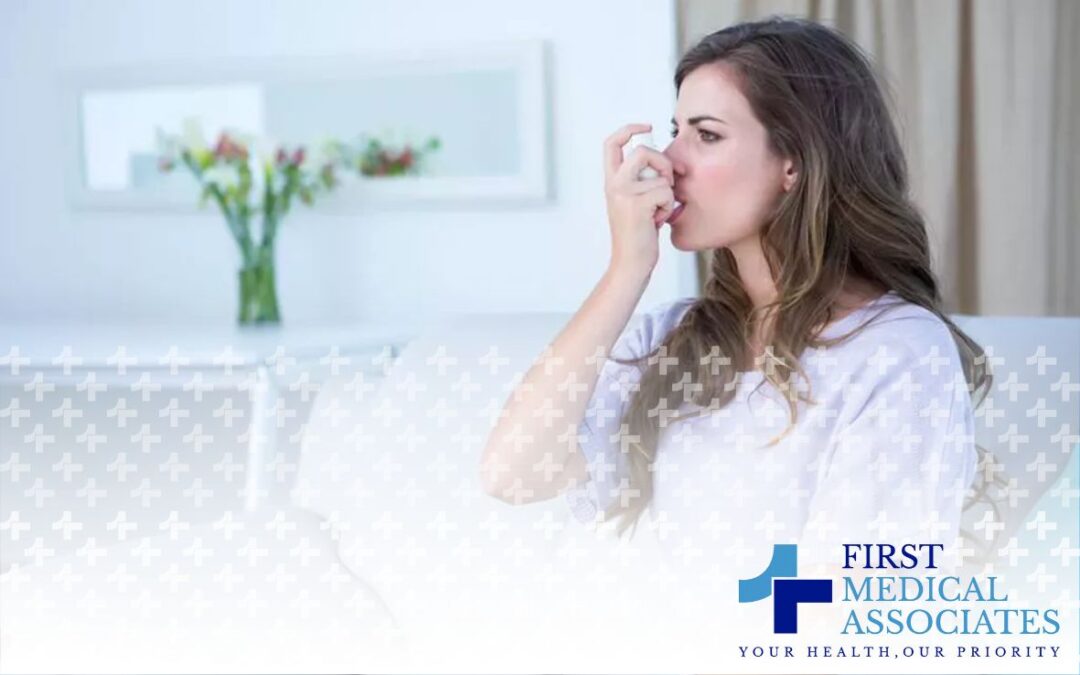Asthma affects millions of Americans of all ages, causing breathing problems that can interfere with daily living. The good news: Knowing your asthma triggers can help prevent flare-ups. Here are nine triggers you might want to avoid.
About 25 million adults and kids in the United States suffer from asthma, a chronic breathing disease that causes symptoms like wheezing, coughing, and excess mucus production. Without treatment, asthma can make it hard to do lots of activities, and it can make you more prone to lung infections and other respiratory issues.
As a leading primary care physician practice in Gaithersburg, Germantown, Rockville and Columbia, Maryland, Doctors First PC provides personalized asthma treatment plans aimed at reducing asthma symptoms and improving each patient’s quality of life. If you have asthma, here are nine common triggers our team says you should avoid.
1. Tobacco
If you smoke, quitting is critically important for managing your asthma and preventing serious complications. Your family doctor can help you quit. Even if you don’t smoke, it’s important to avoid secondhand smoke.
2. Dust mites
Dust mites are literally everywhere, and they’re impossible to entirely eliminate from your home. But you can minimize their impact on your breathing by using special covers for your mattress and pillows and washing your bedding in hot water on a regular basis.
3. Molds
Even a little mold can trigger asthma symptoms. Try to eliminate dampness from your home, and check the areas under your sinks, in your basement, and in your closets — all common areas for mold to hide.
4. Household cleaners
Regular cleaning reduces dust that can cause asthma symptoms to flare, but if you’re using cleansers, you could be making the problem worse. That’s because many cleaning products have chemical fumes or scents that can act as potent triggers for coughing and wheezing.
5. Perfumes
Perfumes and colognes might smell good to your nose, but to your lungs and airways, they can be very irritating. Even if perfumes and colognes don’t bother you, remember that others around you might have asthma or other airway problems, and use those products sparingly.
6. Air pollution
Most of us think of smog from cars and factories as being the only sources of air pollution. But even smoke from your backyard fire pit can be problematic. Whenever possible, avoid areas with airborne pollutants, and be ready with your inhaler if you need to go into any area with smog.
7. Cold air
Cold air causes your airways to constrict. For some people, that’s all it takes to trigger asthma symptoms, including wheezing and difficulty breathing.
8. Humid air
It’s not just cold air that causes problems. Humid air that’s laden with water vapor is harder to breathe, and if you have asthma, it can trigger symptoms.
9. Pollen
Maryland is home to many different species of wildflowers and grasses, not to mention plenty of cultivated gardens. All of these plants contribute to the state’s beauty — but they also produce pollen, a common trigger for both allergies and asthma.
Be careful when exercising
Being physically active is very important for keeping your lungs healthy, but for some people, physical activity causes their asthma symptoms to get worse. Does that mean you should skip exercise to prevent asthma attacks? No.
If you notice that physical activity triggers coughing, wheezing, or other asthma symptoms, try using your inhaler about 15 minutes before exercise to get your lungs ready for activity. (Ask your family doctor first.) If you’re exercising outdoors, monitor the air quality first for pollen and other factors that can make breathing more difficult for people with respiratory problems. You can check air quality for your area here.
Asthma care from your family physician
Your primary care doctor can be a great source of information and tips to help you manage your asthma symptoms. To learn how the team at Doctors First PC can help you, call or book an appointment online with one of our offices today.

